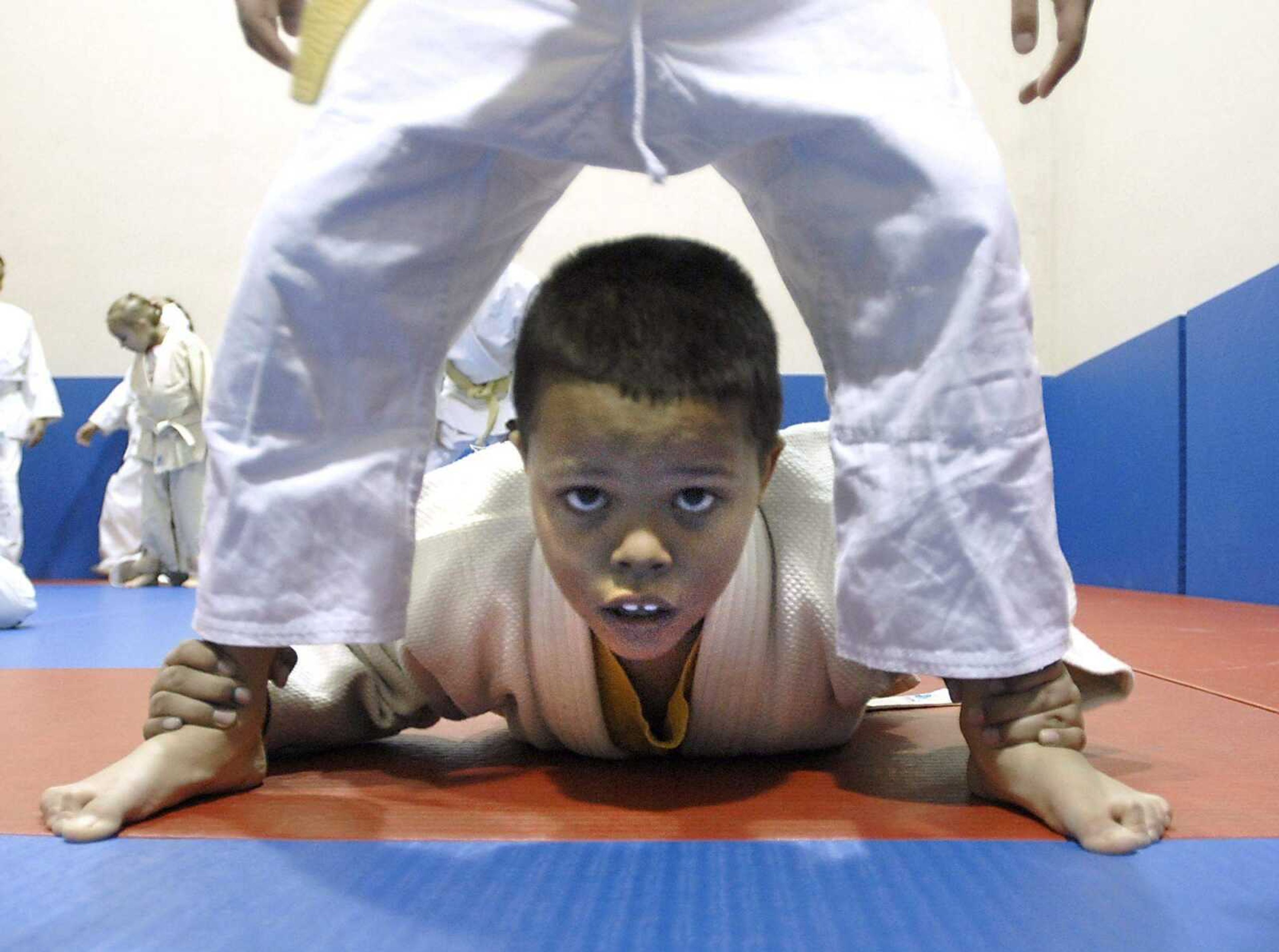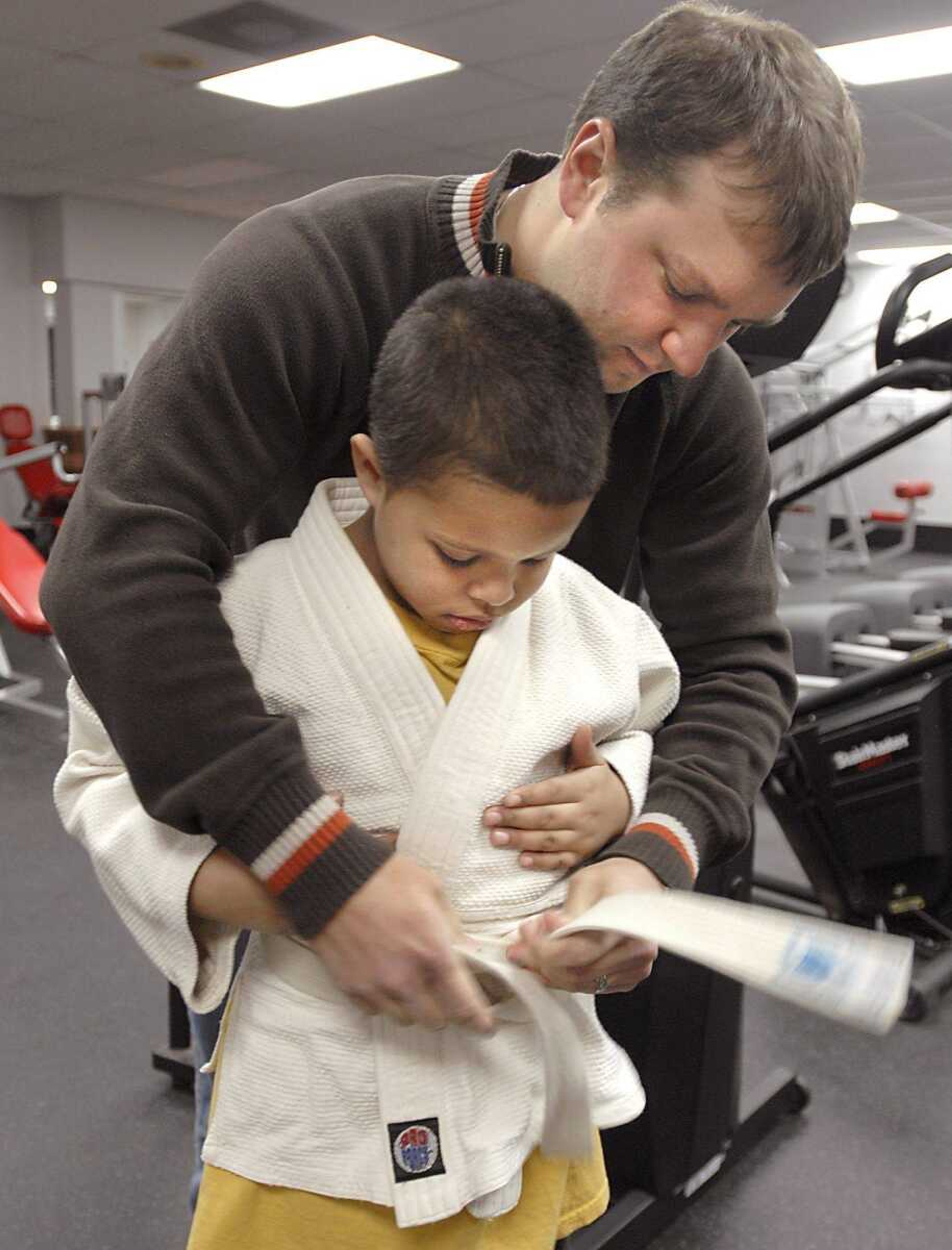Program provides mentors to children who have a parent in prison
Javon Benson is quiet and careful with his words. But after he starts talking, a smile generally creeps in. The 9-year-old loves to fish, although he's the first to admit he's not the best fisherman. Basketball is more of his kind of sport, he says...
Javon Benson is quiet and careful with his words. But after he starts talking, a smile generally creeps in.
The 9-year-old loves to fish, although he's the first to admit he's not the best fisherman. Basketball is more of his kind of sport, he says.
Friends or family members describe him most readily as "sweet," always prepared with his "pleases" and "thank yous."
Javon's been through some difficult patches. His biological father is in prison for attempted murder, and the person he knows as his father has been in and out of jail for possession of drugs for years.
"Everyone around him goes to prison. That's a real big concern of mine. I don't want him growing up thinking it is a rite of passage, or that it's cool. I don't want him to glorify it in any way, shape or form," said his mother, Kirsten Holland.

While Javon has not had a stable or consistent father in his life, he has had a role model for the past four years, mentor Matt Koetting, who volunteers with the Amachi program, run by Big Brothers Big Sisters.
The program matches children of incarcerated parents with a mentor. Javon and Koetting go fishing, out to eat, to movies and on picnics. Every Sunday Koetting takes Javon to judo lessons. Koetting was at Javon's basketball game Saturday, when Javon made his first basket.
"Matt's really given Javon some guidance. He's educated and career oriented and believes in the law. He's really helped Javon see there's things out there, and there's a right way to live," Holland said.
The Amachi program serves 35 children in the Southern region, which includes Cape Girardeau and Sikeston.
It is expanding in Scott County with a $25,000, three-year grant from the Department of Health and Human Services, said Becky James-Hatter, chief executive officer of Big Brothers Big Sisters of Eastern Missouri.
Hatter said the organization hopes to serve 25 children in its first year there. Staff members are working with court systems, schools and businesses in preparation for expansion.
"Children of incarcerated parents were just a group of children that were being lost in the community, because there was not a record of these kids and no first responder to children losing a parent to incarceration," James-Hatter said.
Amachi Missouri
In 2005, Big Brothers Big Sisters approached Lt. Gov. Peter Kinder in an effort to involve the state. Kinder helped create Amachi Missouri, based on a "Mentoring Trifecta." The three prongs are state funding, using state employees as volunteers and developing a partnership with the Department of Corrections.
In fiscal year 2007, the state provided $200,000 for the mentoring program, which doubled in 2008. This year, Gov. Matt Blunt recommended half a million dollars for Amachi.
Kinder, of Cape Girardeau, was hoping for $1.2 million to expand a pilot program that allows state employees to take an hour out of their workweek to mentor a child.
The pilot program was intended for 200 employees throughout the state, but more than 1,000 signed up, Kinder said.
"Far better than building prisons, which is the saddest thing a government can do, is a positive, proactive, bipartisan effort to break that cycle, so we can start emptying out some prisons," he said.
Each inmate who enters the Department of Corrections system is now asked if they have children and if their children would like to participate in a mentoring program.
This summer Kinder presented the "Missouri Model" of mentoring at a conference of the National Lieutenant Governors Association, which unanimously endorsed the model. Illinois is exploring implementing a similar program, James-Hatter said.
Progress
So far, results of the program started in St. Louis in 2003 have been promising, James-Hatter said.
Based on report cards and teacher and parent surveys, 62 percent of Amachi children have shown improvement in academic performance, 64 percent have improved in their relationships with adults, and 60 percent are coming to school more prepared, such as having their homework complete, she said.
Socially, 78 percent showed improvement in their ability to express their feelings.
"That might seem soft, but that is a very important part for a child to grow up and be healthy. If a child can't express their feelings, that tells you two things: one, that they aren't proud, and that they feel scared. This percent means kids' sense of self-esteem and their trust in adults is increasing," James-Hatter said.
Children with incarcerated parents often feel such anger, resentment and embarrassment that negative behaviors can be displayed at home and at school, she said.
However, Koetting said Javon is abundantly kind.
"It kind of boils down to the classic saying that all kids are good. It's just that sometimes there are obstacles that get in their way that push them off their path. I'm hoping that by becoming part of his life I help him realize he is a good kid," Koetting said.
On Sunday, as Koetting helped Javon prepare for judo, the two chatted about what Javon would do on his upcoming day off from school, about Javon's basketball endeavors, and about how funny the movie "Alvin and the Chipmunks" was.
"Matt's fun and creative," Javon said.
Koetting is an attorney for a juvenile officer, and Holland is completing a degree in criminal justice, with the hope of becoming a parole officer.
She hopes Javon will develop a respect for the law, "not perceiving that all police are terrible and they took my daddy away from me."
"Matt's really helped him from being angry and helped him understand the situation better," Holland said.
Javon's brother, James, has reason to be happy as well. The 8-year-old was recently matched with an ex-police officer and his wife.
lbavolek@semissourian.com
335-6611, extension 123
Connect with the Southeast Missourian Newsroom:
For corrections to this story or other insights for the editor, click here. To submit a letter to the editor, click here. To learn about the Southeast Missourian’s AI Policy, click here.









